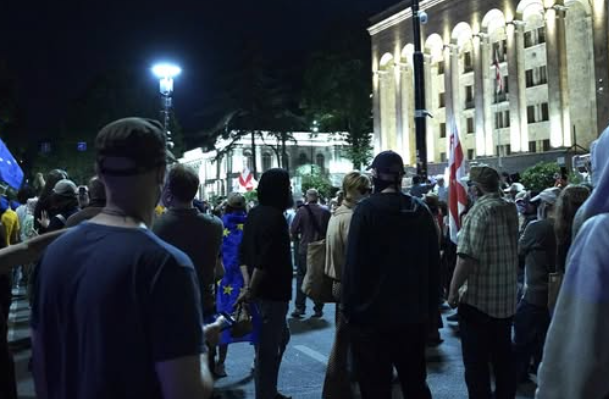In Tbilisi and Zugdidi, activists demand to release political prisoners
On the 193rd day of protests, participants in the pro-European action again blocked traffic in front of the Georgian parliament building. Relatives of those arrested for participating in the protest actions took part in a rally in Zugdidi, where they distributed a newspaper with letters from political prisoners.
In Tbilisi, activists have been holding daily protest actions in front of the Georgian parliament building for over six months now. They block traffic along Rustaveli Avenue. The protesters are demanding to release all arrested supporters of European integration and to hold new parliamentary elections.
Today, like in previous days, Rustaveli Avenue has been blocked by the people on protest in front of the Georgian parliament building, the “Publika” portal reports.
On the 193rd day of the continuous protest actions, “the demands of the protesters remain unchanged: to hold new parliamentary elections and to release those detained during the protests. The protesters brought flags of Georgia and the European Union to the place,” the “Interpressnews” reports.
At the protest action in Batumi, activists gathered near the flags of Georgia and the European Union, as follows from the video posted by the “Netgazeti” publication.
Relatives of the young people arrested for participating in the protest actions are participating in the rally in Zugdidi. They are reading out letters from prisons written by their relatives. Over the course of two days, the parents of activists in Samegrelo distributed almost 15,000 newspapers, which published letters from political prisoners. The parents claim that their children are being punished for their love for the homeland, the “Pirveli” TV Company reports.
This was originally published on the Russian page of 24/7 Internet agency ‘Caucasian Knot’ on June 8, 2025 at 09:51 pm MSK. To access the full text of the article, click here.
*On March 21, 2022, the Tverskoi Court of Moscow banned the activities in Russia of the Meta Company, owning the Facebook, Instagram, and WhatsApp, in connection with extremist activities.

